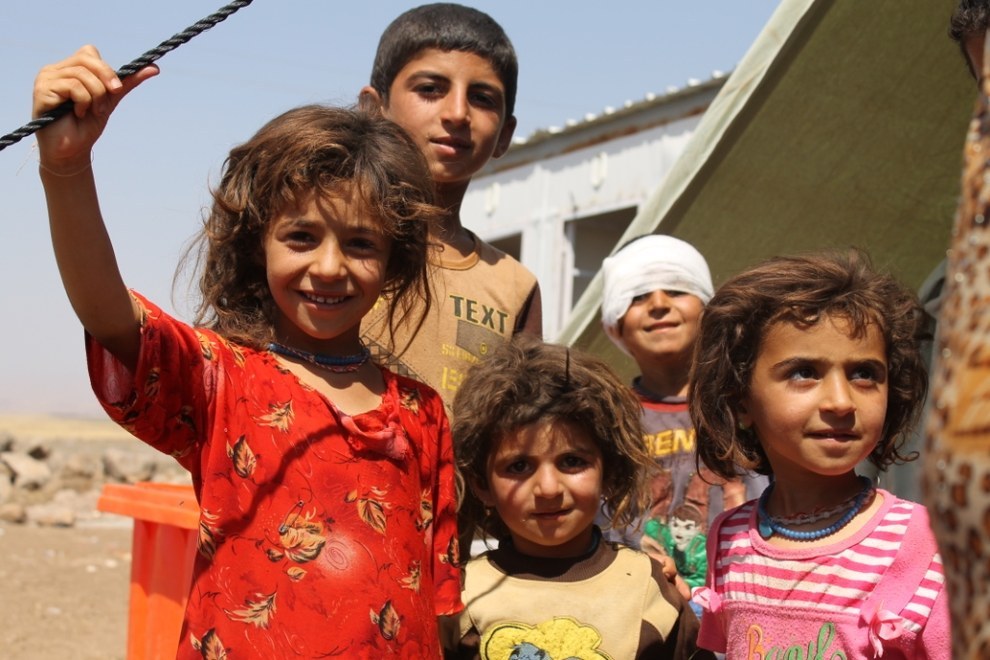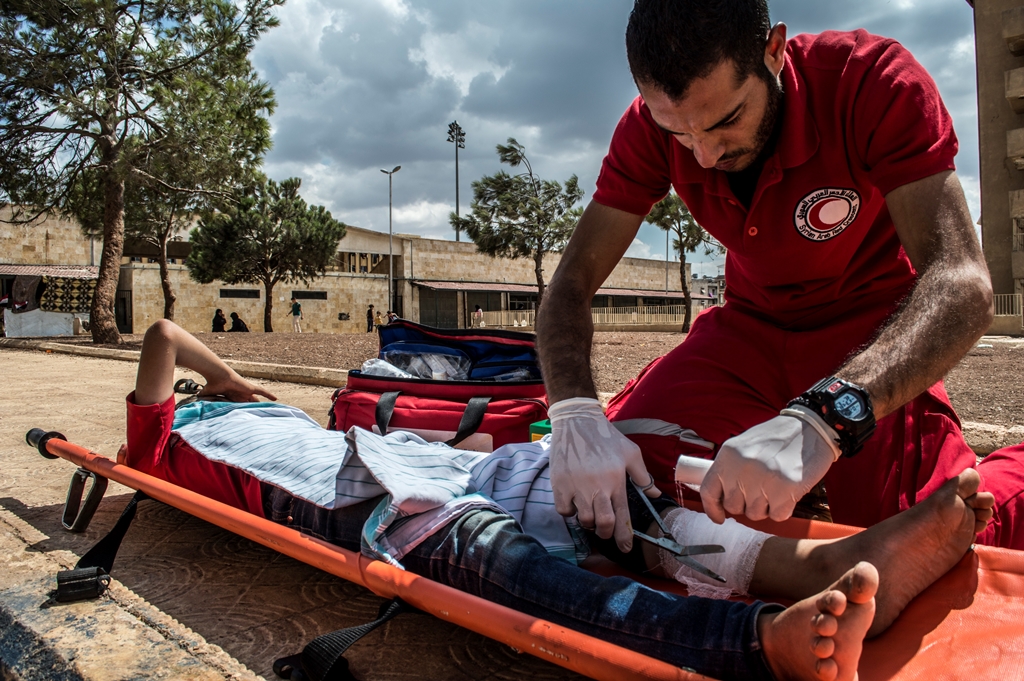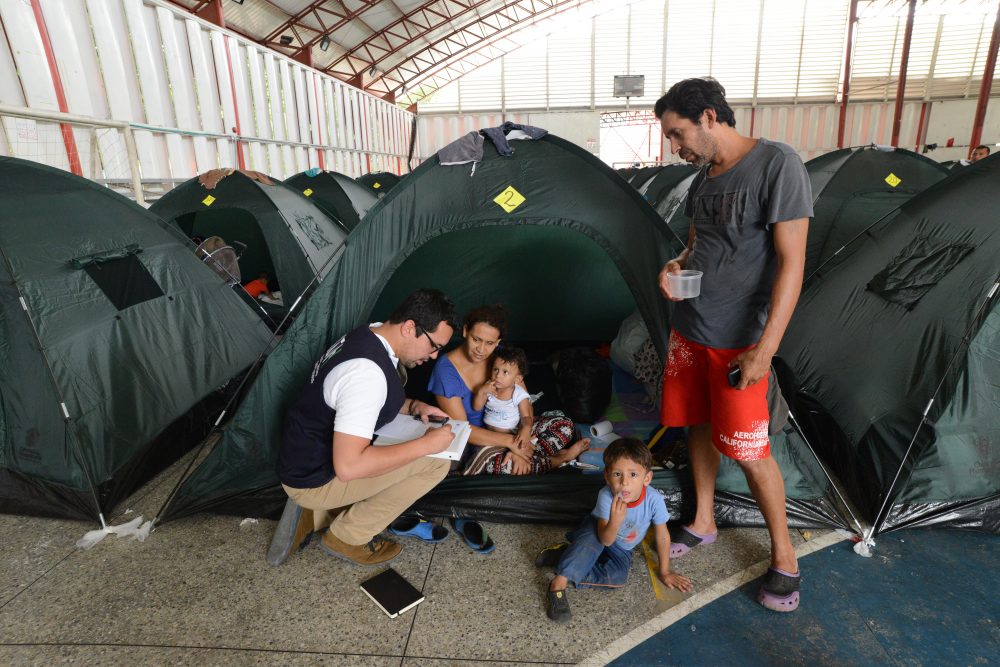Record Refugee Numbers Demand Action
As I was scrolling through my Twitter feed on World Refugee Day (June 20), a certain verse kept repeating itself in my mind. “If a brother or sister is poorly clothed and lacking in daily food and you say to them, ‘go in peace, be warmed and filled,’ without giving them the things needed, what […]

As I was scrolling through my Twitter feed on World Refugee Day (June 20), a certain verse kept repeating itself in my mind.
“If a brother or sister is poorly clothed and lacking in daily food and you say to them, ‘go in peace, be warmed and filled,’ without giving them the things needed, what good is that?”
Indeed. What good is that?

It’s a Bible verse, and while I certainly don’t intend to preach here, those are the words that rolled through my mind. Of all the things there were to say on World Refugee Day about the stories of people who have survived, overcome, and contributed wonderful things to all of our lives (whether you know it or not), those words seemed the most fitting to me, given the staggering numbers of refugees.
The global refugee crisis is one that demands our action, and yet seldom receives action commensurate with the demand. The latest report from the United Nations’ Refugee Agency (UNHCR) paints a dismal picture:
- At the end of 2015, 65.3 million people were forcibly displaced around the world.
- One in every 113 people in the world is an asylum seeker, a refugee, or is internally displaced within their own country.
- Syria, Afghanistan, and Somalia respectively count for half of the world’s refugees.
- In 2015, Yemen had the largest number of newly internally displaced people.
- More than half of all refugees are children.
- Don’t think the Americas are absolved from involvement. Rising numbers fleeing gang and drug violence in Central America has made sure of that.
There are several reasons for the massive displacement. Conflicts are continuing for longer periods of time (Somalia and Afghanistan are in their third and fourth decades, respectively); refugee solutions are minimal (most will likely be unable to return home and there are poor camp conditions); and a backlog or the time involved in processing refugee requests from proper resettlement fuels moving on to a new location.
Reasons funders often struggle with addressing the refugee crisis are valid: at times, it is a politically charged topic, it is an enormous issue that spans the entire world, and it has been going on so long that it’s easy to ignore in the light of more recent issues in our own country, such as the Orlando shooting.
Three Ways Funders Should Approach the Crisis
Odds are good that the refugee crisis will continue to grow as the year continues. It will undoubtedly affect many issues that you, as a funder, are already working on. I think the appeal to fund refugee needs is an emotional one, but it also encompasses a number of areas. If you choose to address the refugee crisis, here are three approaches to consider:
- Nongovernmental organizations need flexible funds. This is not a “nice to have” option. It is a need. What NGOs face on the ground—areas they are allowed in and out of, borders that are open one day and closed the next, changing rules and laws—all require flexible funds if they are to meet challenges well.
- Fund projects near the source. While Europe grabbed many headlines in 2015 as refugees streamed across the Mediterranean Sea and into countries around the continent, it’s important to remember that the most pressing needs are usually in the countries directly around the source of refugee flow (in the case of Syria, those countries are Jordan, Turkey, Lebanon, and Iraq).
- Partnerships are key. Innovative partnerships truly leverage funds and technology and people. This crisis has given me a front-row seat to what partnerships can do—whether it is providing water in refugee camps, or addressing housing issues in Lebanon—the scale of need in this situation demands unprecedented and creative collaborations. And that has been a beautiful thing to watch unfold.
Finally, the Center for Disaster Philanthropy expert staff and advisors are always ready to help you determine where and how you can best address this crisis through effective, action-oriented funding.
After all, what good is inaction?
More like this

World Humanitarian Day: Call to Protect Humanitarian Workers and Volunteers
